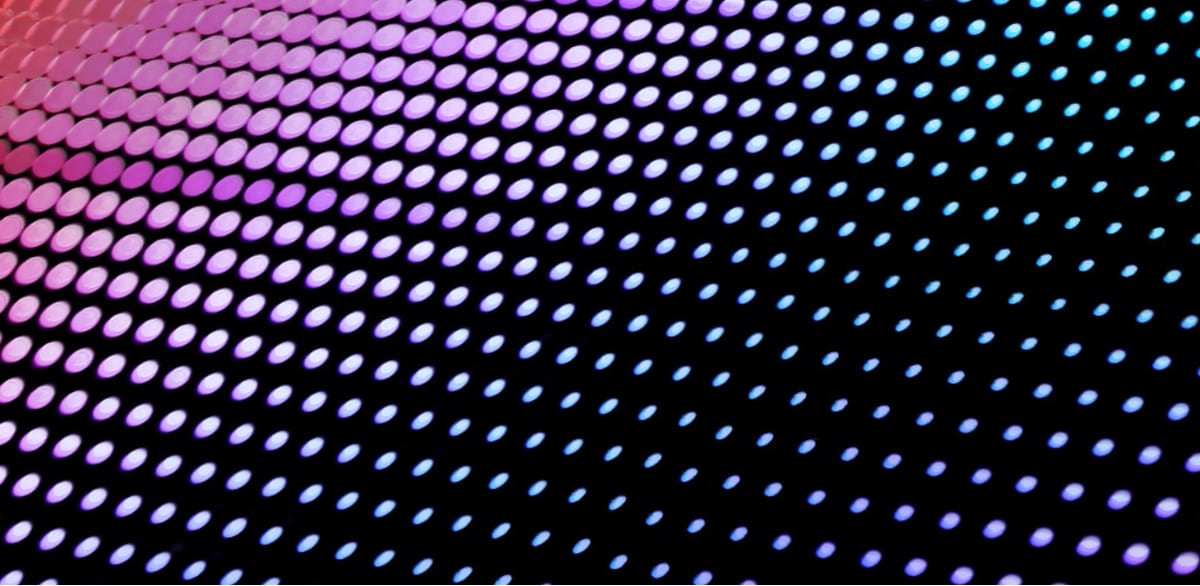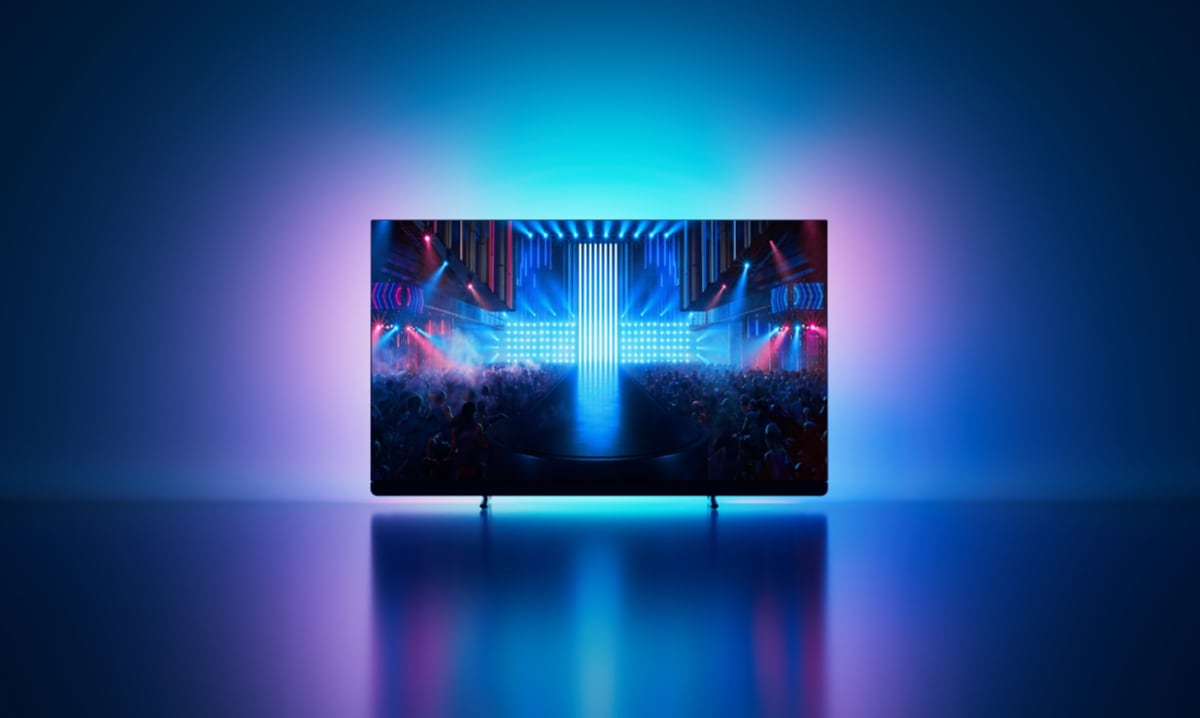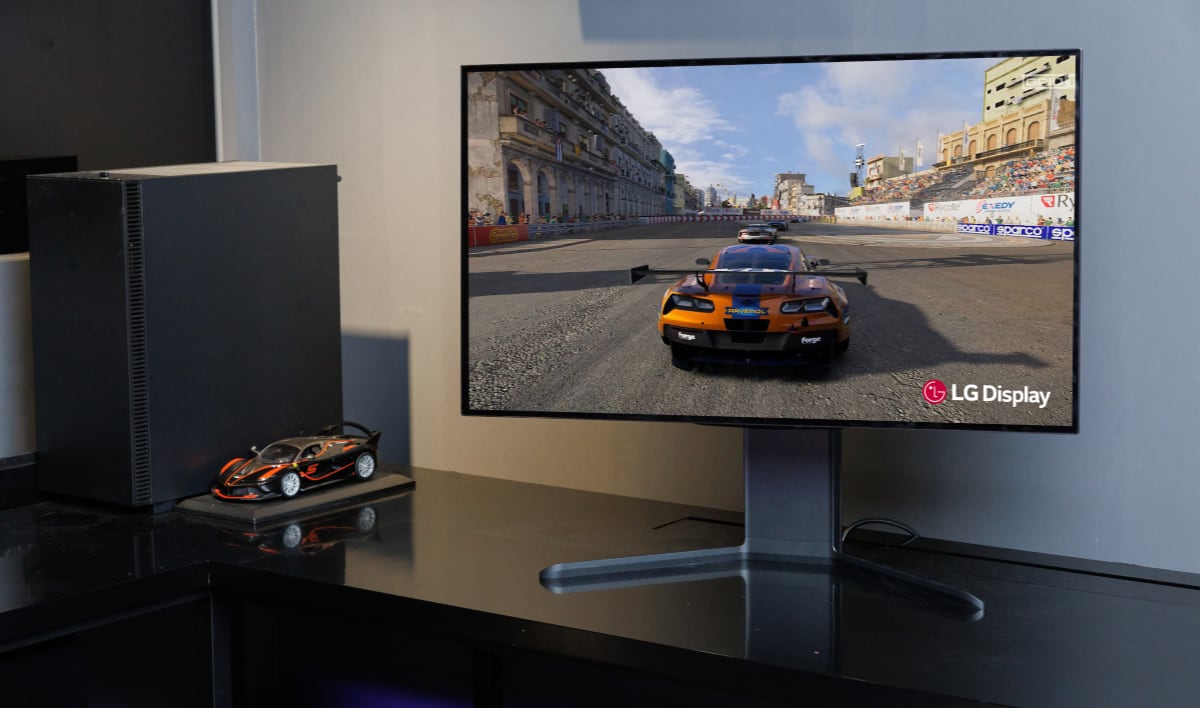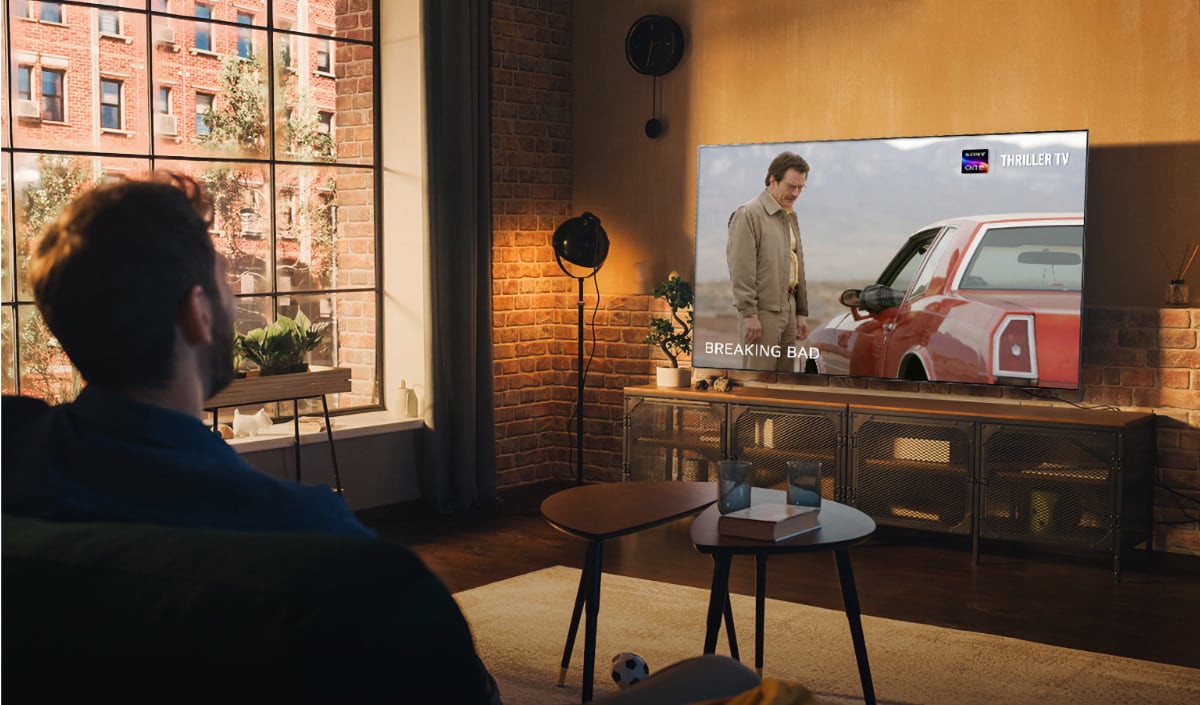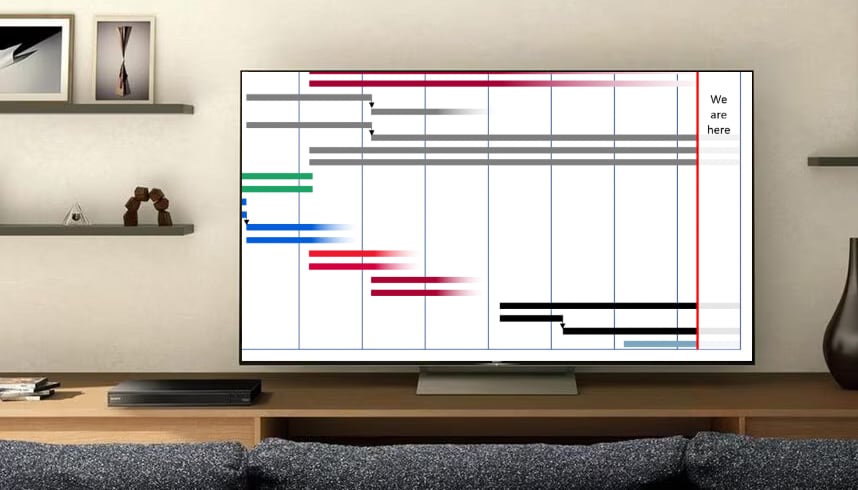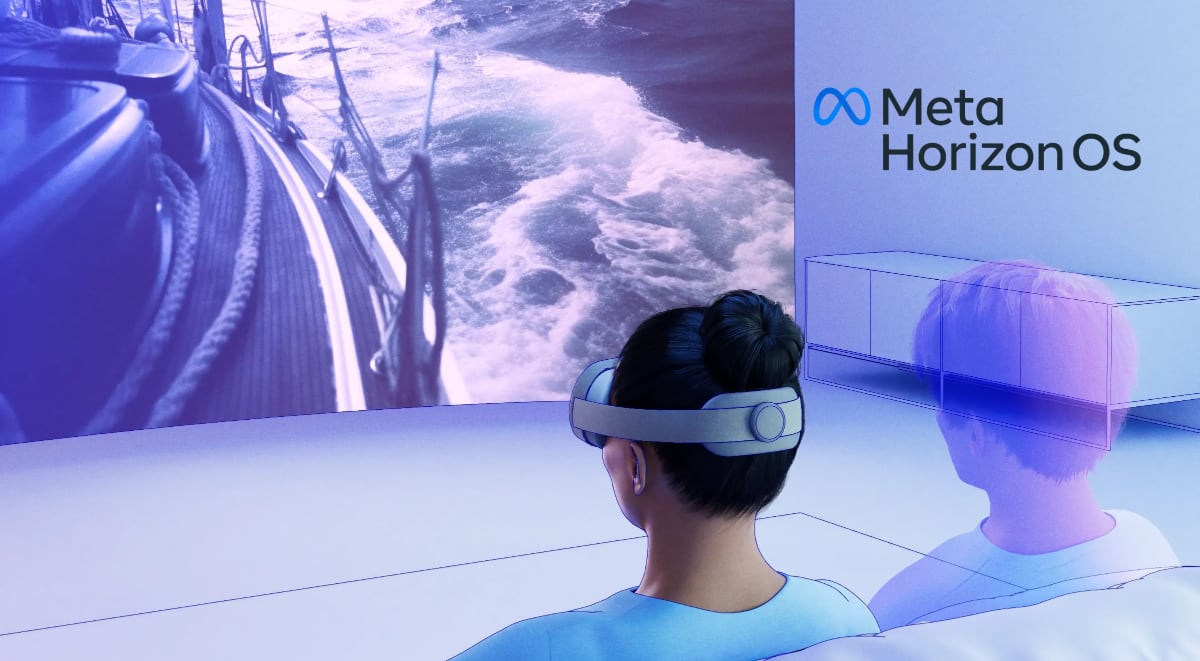QD-OLED will have "brighter and broader color expression", deep blacks, fast response, and wide viewing angles, according to Samsung Display. It also reduces visual discomfort.
What is QD-OLED?
Samsung Display, the display panel manufacturer, has published a website with information about its new QD-OLED display technology, which Samsung Electronics is rumored to launch next year with 55- and 65-inch QD-OLED TVs.
The company explains that a 'blue self-luminescence' layer (can be either OLED or microLED) produces blue light, of which the intensity can be regulated on the pixel-level. In two of the sub-pixels, blue light is converted to red and green (for RGB pixels) through the use of quantum dot color converters as opposed to color filters in current displays such as LCD and LG's WOLED.
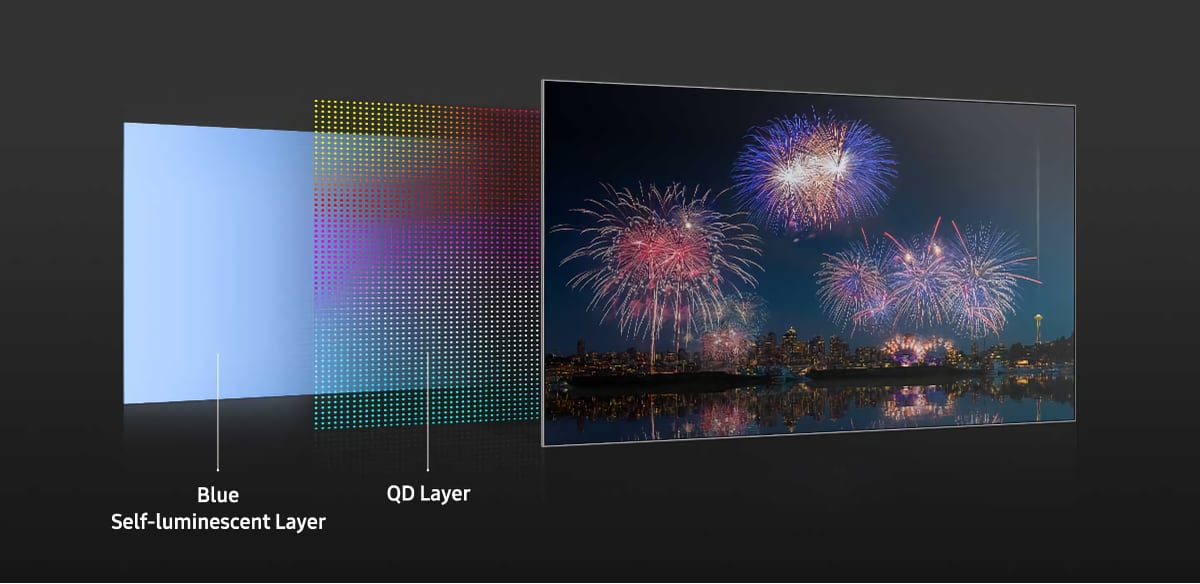
QD-OLED display technology. Photo: Samsung Display
Samsung Display compares QD-OLED to LCD – such as current the Samsung "Neo QLED" or "QLED" LCD TVs – highlighting the advantages of self-emitting display technology.
- "Conventional displays limit screen brightness because of light source or power consumption issues. With the backlight unit as the light source, it is almost impossible for LCDs to control the brightness of each individual pixel, limiting their ability to show you perfect blacks on screen. Unlike LCDs, the blue light source of the QD display can control the light source of each individual pixel. QD displays with 4K resolution has about 8.3 million (3840x2160) light sources that can be controlled separately," said Samsung Display.
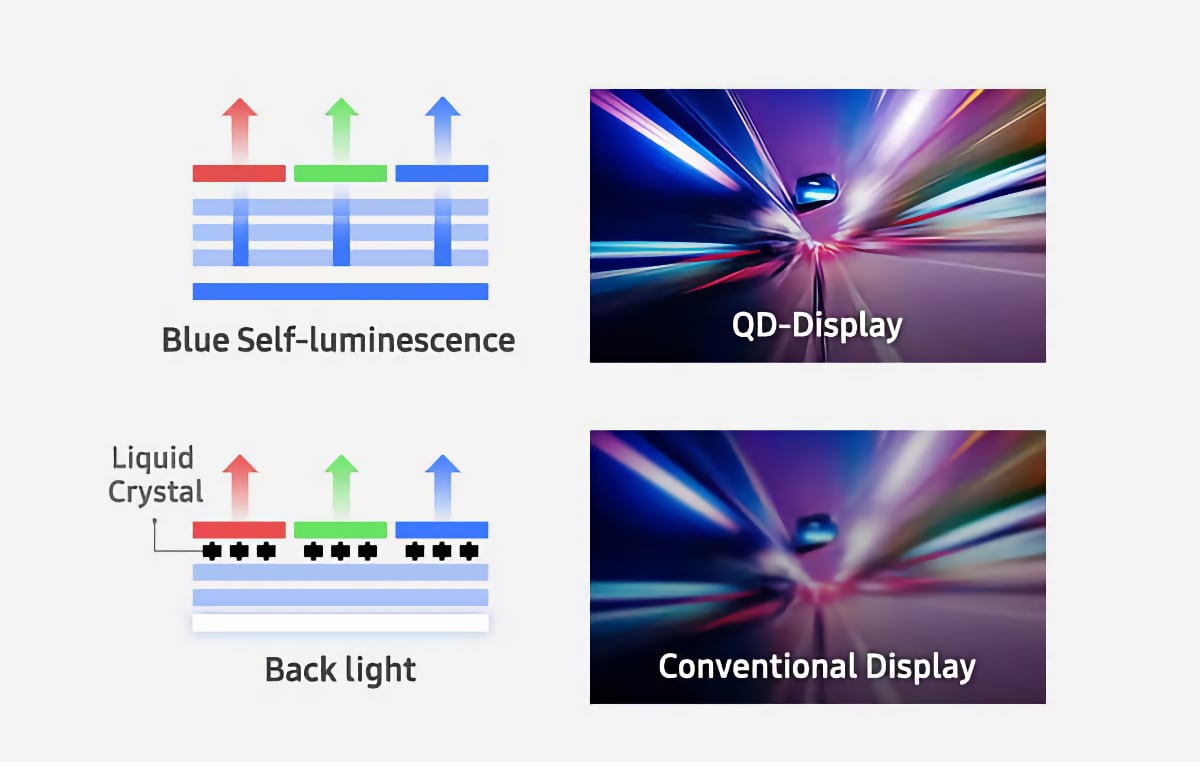
QD-OLED (top), QLED/LCD (bottom). Photo: Samsung Display
1000 nits? 80% BT.2020?
QD-OLED delivers bright and pure colors that exceed 80% of the BT.2020 color space, according to Samsung. In one graph, QD-OLED is described as capable of delivering 0.0005 nits blacks and 1000 nits peak white. However, we would be surprised to see the first generation of QD-OLED TVs reach 1000 nits.
Samsung's new OLED panel type will also have wide viewing angles, fast response time, and low reflectivity. In addition, Samsung said that it "reduces 'harmful blue light', which can be dangerous to your eye health, by 40 to 50% over LCDs, and this is the lowest level of all current displays".
Also read: Samsung's QD-OLED TVs could launch in 2022, microLED TVs delayed
Lastly, the company acknowledged what FlatpanelsHD has been pointing out repeatedly in our TV reviews over the year: "The better the display shows the blacks, the brighter it looks", said Samsung. Your eyes adapt to the light in your environment (or the display), which is why peak brightness cannot be used as a yardstick for HDR picture quality. A display's HDR picture quality is determined primarily by its dynamic range, or contrast.
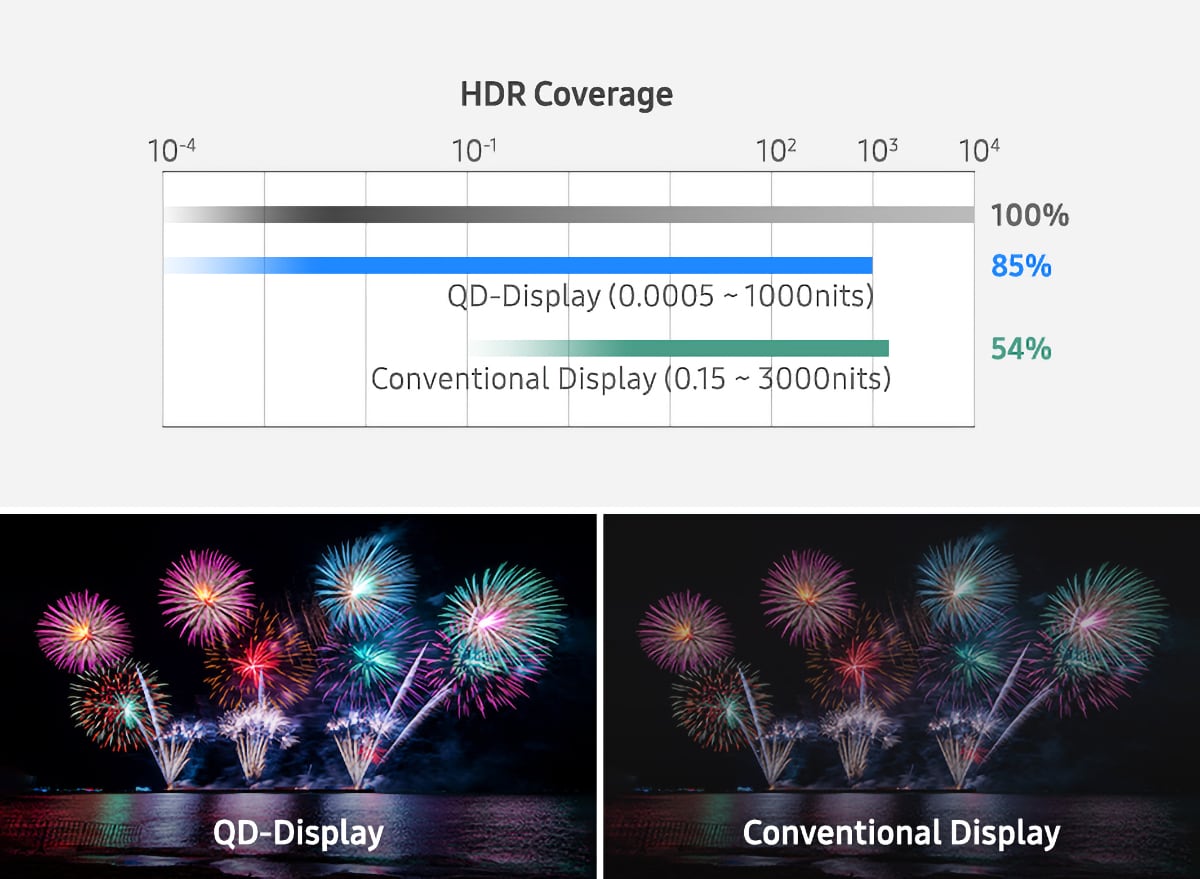
QD-OLED display technology. Photo: Samsung Display
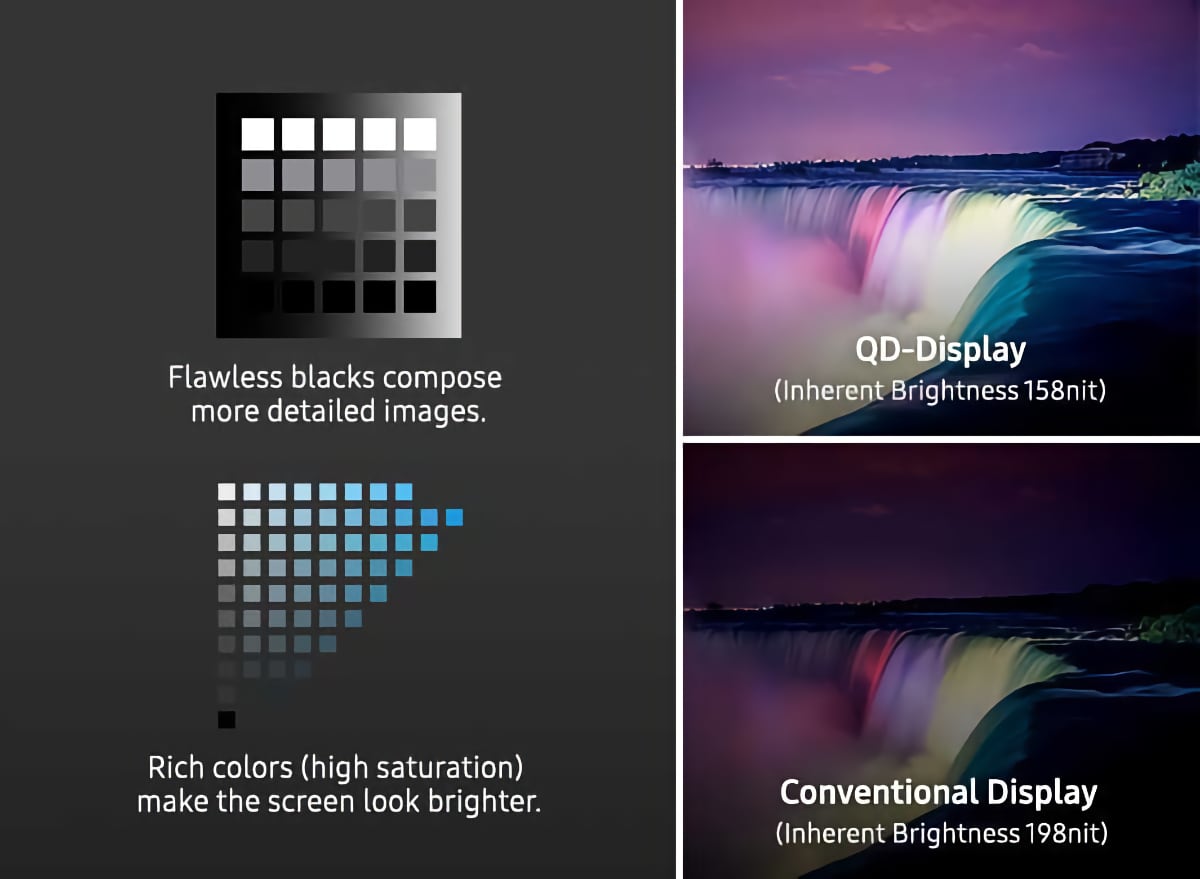
QD-OLED display technology. Photo: Samsung Display
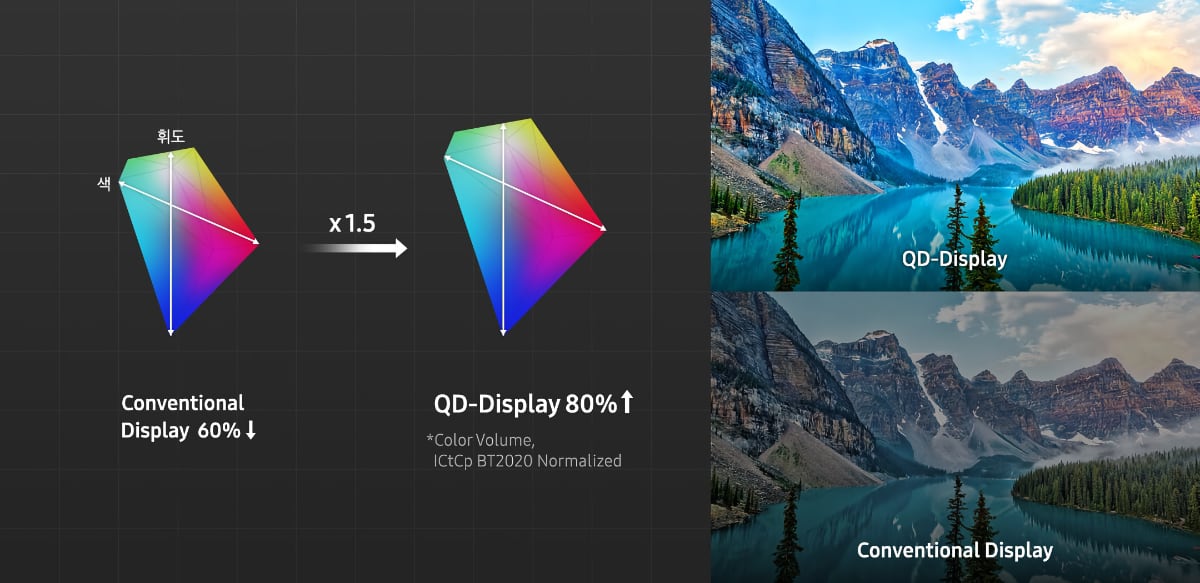
QD-OLED display technology. Photo: Samsung Display
- Source: Samsung Display

